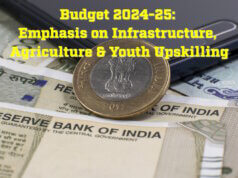 K.K. Goel, Founder & Chairman, KDP Infrastructure Pvt. Ltd, an infrastructure and group housing project development company based in Noida, discusses the importance of project management in the Indian real estate and construction industry.
K.K. Goel, Founder & Chairman, KDP Infrastructure Pvt. Ltd, an infrastructure and group housing project development company based in Noida, discusses the importance of project management in the Indian real estate and construction industry.
The Indian real estate and construction sector is now getting more organised and also the policymakers of the country are taking cognisance and addressing the bottlenecks in the industry. Economic slowdown coupled with high rate of inflation is taking its toll on housing development growth. Many of the organisations are turning towards adopting better management to increase efficiency in terms of cost, quality, delivery and profit. Construction is highly labour oriented and the projects mostly get delayed due to unpredictable market conditions such as non-availability of major raw materials and labourers.
The real estate and construction industry is an integral part of the economy and plays an important role in the development of the country’s infrastructure base and is one of the largest generators of economic activity. The construction sector has strong linkages with various industries such as cement, steel, chemicals, paints, tiles, and fixtures and fittings. The real estate sector is an imperative component of the construction industry and serves as a propeller for private sector involvement in growth of the country’s built environment.
India has foreseen a paradigm shift in economic growth in the last decade primarily on account of economic reforms that ushered in an era of liberalisation and provided for increased participation from the private sector. Influx of the economy for investment has spurred fundamental growth in varied sectors, thereby leading to accelerated consumption and heightened investment activity in the economy. This growth has percolated to the construction and real estate industry as well, which is a conduit for growth in a large number of ancillary industries in the country.
Project management serves to efficiently manage activities such as proper planning, scheduling, monitoring and timely delivery while keeping sustained growth. The various factors which are included in project-management are:
- Review project risk factors and develop mitigation solutions for each area of risk.
- Comprehensive talent management strategy allowing us to quickly and accurately assign and or recruit resources based on client needs.
- Convert unequaled project volume into real cash savings and value creation for our clients.
- Provide guidance and advice to clients on sustainable design and occupancy strategies to further the client’s corporate social responsibility objectives.
 Project management is a new term in the development industry; the working class that falls in the space of this industry includes architects, engineers and quantity surveyors. Project management is fundamental in ensuring project success which revolves around four elements: performance, cost, time and scope.
Project management is a new term in the development industry; the working class that falls in the space of this industry includes architects, engineers and quantity surveyors. Project management is fundamental in ensuring project success which revolves around four elements: performance, cost, time and scope.
A project manager is responsible for the on-time and on-budget completion of the development project and typically works directly for the owner. Before construction begins, the project manager may be responsible for site selection and due diligence, securing the correct zoning and entitlements, selecting contractors, and creating a working schedule and budget.
Over the past couple of decades, project management has become more widely accepted in the construction industry, and the role of an independent project manager as essential for successful project execution. With globalisation, increasing diversity and complexity of projects as well as more stringent financing requirements, most of the developed economies continually redefine PM methodologies to meet these demands and achieve project objectives. Clients (developers and investors) insist on more stringent time, quality and cost terms, making it increasingly necessary to include specialist management skills in project teams.
Project management embraces various parties, people, procedures, practices and processes. In real estate development, project management is used to ensure the development project is completed on time, within cost budget, in accordance with quality and design requirements, and in compliance with relevant laws and regulations. There are many aspects that can be touched upon.
The real estate development and construction industry is no stranger to volatility. Managing a large-scale construction or renovation project can be daunting for any company, especially when building in a different country. Navigating the various processes, government regulations and construction trade differences inherent to specific countries can pose significant roadblocks for companies as they embark on global projects spanning many markets. In order to remain competitive in the marketplace, there are opportunities to deploy project management expertise outside the comfort zone of your own country or region.
As projects become more complex and expectations rise, project managers are now frequently used in a typical real estate confined to a more design role while the project managers take up the role of monitoring and supervising the overall development progress. Project managers are to take mainly the interest of the real estate owner or developer first in making sure the project is completed on time etc. and they are to be differentiated from construction managers, who are usually hired by the building contractor to coordinate the various construction site activities.











